Inside the Jury Room with Vera Mijojlić, Yaara Ozery, and Yorgos Krassakopoulos
- Cristina Sandu

- Sep 26, 2024
- 18 min read
Updated: Sep 27, 2024
As members of the prestigious Romanian Days Feature Jury at the Transilvania International Film Festival in 2024, Vera Mijojlić, Yaara Ozery, and Yorgos Krassakopoulos each contribute their distinct insights to the world of cinema.
Vera Mijojlić, a first-time visitor to Romania, shares her cultural impressions of Cluj-Napoca and the festival's exceptional organization, highlighting the smooth logistics that made their jury duties enjoyable. For Yaara Ozery, the Romanian Days Feature selection defied her expectations, offering bold and complex films that reflect Romania's cultural and socio-political state. Yorgos Krassakopoulos emphasizes the festival's unique atmosphere and the richness of talent in Romanian cinema.
This interview explores what it means to be on a film festival jury and offers insights into the Transilvania International Film Festival and the film industry. It features three jurors from around the world who share their experiences at TIFF Romania, their perspectives on the industry, and the trends they’ve observed in the current Romanian filmmaking sector.
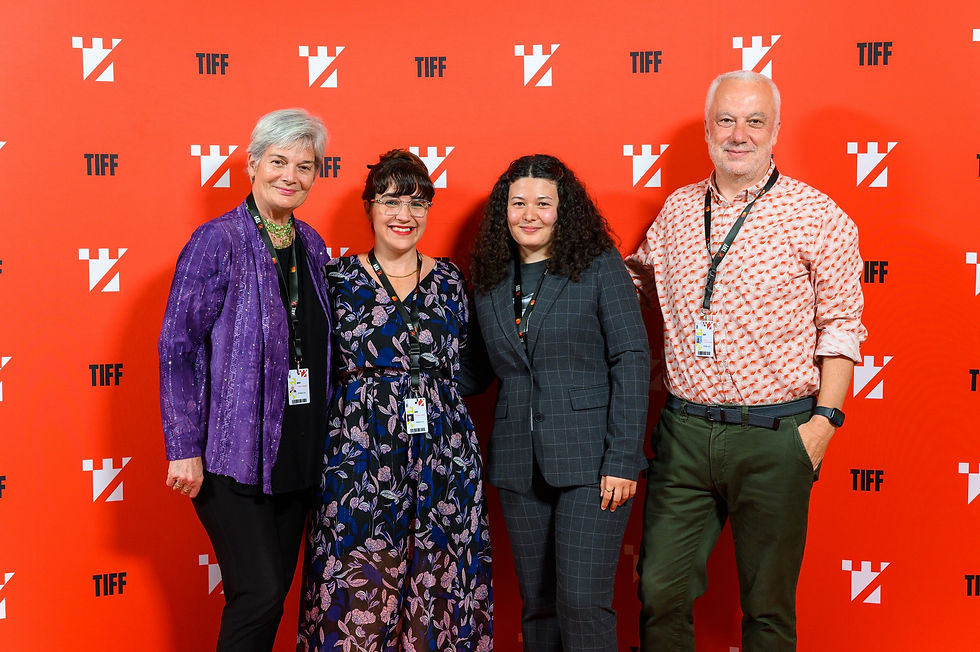
To begin with, how was your experience as members of the Romanian Days Feature Jury at the Transilvania International Film Festival?
Vera Mijojlić: As this was my first time in Romania, first time at TIFF and in Cluj, it was a sensory as much as a cultural experience. The lovely blend of Romanian and Hungarian vernacular heard on the streets, in addition to many more languages spoken by international guests (English notwithstanding), with an engaged audience of local moviegoers at well-attended screenings, plus a wide selection of movies on the festival program, all made this first intro to TIFF a memorable time for me.
What I witnessed first-hand about the overall organization of this large event was faultless. Everything ran smoothly and on schedule, making the task for us on the jury much, much easier. The logistics of live events matter a lot more than people think, but usually get noticed and mentioned only when things get messy and don’t go as planned. Kudos to whoever was in charge of the logistics at TIFF.
I was fortunate to serve on the Romanian Days Feature Jury with two wonderful colleagues, Yaara Ozery and Yorgos Krassakopoulos. Both consummate professionals with years of experience were a pleasure to work with. An easy rapport was established right away, and we worked together like old friends. Our approach to movies was similar, and we were on the same page through the end. It made our assignment that much easier. We were greatly helped by our terrific jury coordinator, Cristina Sandu, who quietly and efficiently steered our trio across town to cinemas, screenings, meetings, and industry get-togethers. In my book, the whole experience gets a perfect A+ score!
Yaara Ozery: The Romanian Days experience was fascinating. I was expecting it to be a seismograph reflecting the current Romanian cinema and its cultural and socio-political state. However, it was more complex, and the bold and unique selection—mixing fiction and documentaries and welcoming mostly young and emerging filmmakers—made me reconsider my expectations towards films I watch in general.
Yorgos Krassakopoulos: Even though I had been familiar with the festival, this was my first time attending, and it was a thoroughly enjoyable and stimulating experience. The festival provided the perfect environment to forge deeper connections with the local filmmaking community and to gain a closer look at the Romanian films of the year. Moreover, I was able to immerse myself in the vibrant atmosphere of TIFF Romania, whose energy and spirit I found both inspiring and memorable. The experience not only deepened my appreciation for the festival but also left me eager to return.
When evaluating films for the Romanian Days Feature Award, what criteria have you considered? Have you prioritised specific aspects of storytelling, direction, or production?
Vera Mijojlić: In both storytelling and direction, I appreciate the filmmaker's restraint and discipline. When an artist gets too enamoured with his/her/their work, they can easily end up entangled in too much material, losing the thread and letting the story meander beyond its shelf life. Editing is just as important, and having a 'steady hand' and a cool head when cutting the scenes is worth all the time spent on getting the final cut right.
Much can be said about production values, but nowadays, technology allows a lot of 'bang for the buck' at a relatively low price. With independent movies, I see production values in the level of artistry and good practices in all facets of moviemaking, beginning with the sound, maintaining the tone of the whole work across camerawork, music - or soundscape that matches the vibe of the filmmaking approach, all the way to translation. Much can be said of translating movies and fitting subtitles to image. It is not always the filmmakers' fault if much gets lost in translation.
The unique poetry of every language, the lovely idioms and the culturally rich references do not translate all that well. That said, translation and subtitles matter a great deal, and if a filmmaker manages to skilfully communicate ambiguities and region-specifics through subtle visual references or gestures of the film subjects, that counts for good points in my book.
Yaara Ozery: When evaluating films, my criteria (also as a programmer) are always searching for new ways of storytelling, strong and bold cinematic language, and the unexpected and exciting. This may be in terms of new or unexpected ways of storytelling, characters and protagonists, aesthetics, or politics. I am interested in films that challenge my own perspectives and worldviews and make a difference.
Yorgos Krassakopoulos: A film is always the sum of its parts, but a truly great film transcends those individual elements to create something more meaningful. When I evaluate films, whether for the Thessaloniki Festival or as part of another festival jury, I focus on the bigger picture—how all the components come together to form a cohesive and impactful work. That being said, I still pay close attention to the individual aspects, but I value how they serve the film as a whole.
A film that excels in one area but lacks coherence or fails to engage emotionally may not resonate as strongly. I look for films that work harmoniously, where the technical and creative aspects—such as narrative structure, visual style, sound, and performances—come together to elevate the film and create an experience that lingers with the audience.
Ultimately, I prioritize films that not only demonstrate technical and artistic skill but also convey something deeper—films that provoke thought, challenge perspectives, or offer a fresh voice. It’s about finding that delicate balance between craftsmanship and emotional or intellectual resonance.

Have you noticed any trends in the films presented at TIFF Romania 2024?
Vera Mijojlić: Several young, first-time filmmakers tackled the complexities of contemporary families grappling with the search for identity and exploration of gender fluidity by their offspring. I greatly appreciated some of the films' notable vérité, raw documentary style. The choice of complex, sometimes flawed subjects and portraits of colourful characters ran from very good to bizarre, with varied success, yet all showing complete immersion in the story and total commitment on the part of the filmmakers to capturing that elusive moment of cinematic truth that resonates with the viewer. A tall order, to be sure, and at the same time, it is satisfying to see young filmmakers chasing after such goals.
Yaara Ozery: I appreciated the tendency to blur boundaries between fiction and documentary in quite a few of the films, as well as the ability of young and emerging filmmakers to work with relatively low budgets in creative ways; some have to do with this tendency to blur boundaries, like in the film "Dismissed" which won the Romanian Days Feature Award.
Yorgos Krassakopoulos: Speaking specifically about the Romanian Days Selection, which offers a snapshot of the year's production across documentary and fiction films, it's challenging to pinpoint clear trends as the films are diverse in their approaches and subject matter. Each work has its distinct voice, making it difficult to draw overarching themes. However, what does stand out is the richness of talent and the filmmakers' strong desire to engage with important subjects and themes. Whether tackling social issues, exploring personal narratives, or experimenting with form, there is a palpable drive to reflect and question the world around us. This variety and depth make the Romanian film scene so dynamic and exciting.
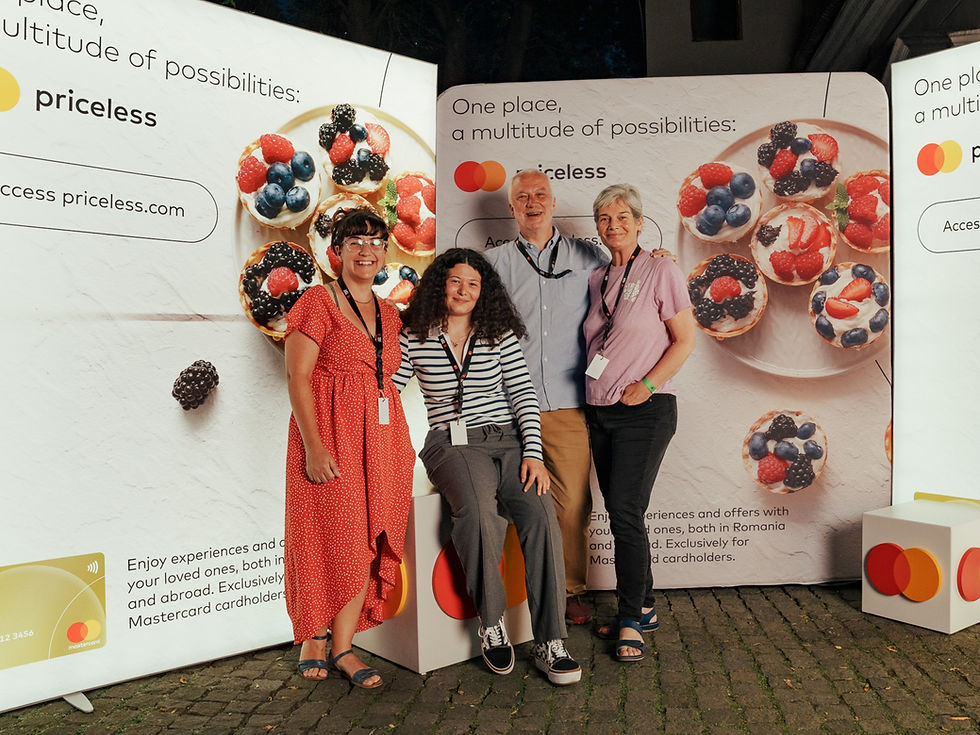
How important is it for you to consider the cultural and social context of the films when making your selections?
Vera Mijojlić: Context is everything. Without context, even when it is seemingly absent, stories easily fall into the shallow depths of solipsistic exercise. However, novel or not, the filmmaking style in the Romanian movies I saw was all rooted in a specific place, specific culture, even micro-culture – but specific culture nonetheless. One of the reasons we all go to see new Korean or Georgian movies is to also experience the culture and locales we haven’t been to, which deeply inform the stories and filmmaking. It doesn’t matter if it’s a sci-fi film, fantasy, documentary, historical or political film – they all carry the stamp of the larger cultural and social context they arose from. Costa-Gavras made his iconic "Z" in Algeria and the French language, yet the film was a banner for the Greek anti-junta resistance while also enduring as one of the best political movies ever made.
Yaara Ozery: These aspects are inseparable from the films’ style and artistic vision, so they are highly important. It was interesting to receive a broader sense of the cultural and social atmosphere in present-day Romania through the films.
Yorgos Krassakopoulos: We don’t live in a vacuum, and just as filmmakers are influenced by the real world, so are we as programmers when watching their work. The cultural and social context inevitably influences how a film is received and understood. However, while context is important, it must be addressed in a meaningful and cinematically interesting way.
What matters most is how the filmmaker engages with these themes—how they use the language of cinema to explore, question, or challenge the world around them. A film can be deeply rooted in its social or cultural moment, but it needs to resonate beyond that, offering something that captivates and speaks universally through its craft and storytelling.
Comparing TIFF Romania with other film festivals you have attended, what makes it stand out?
Vera Mijojlić: Going back to the importance of context: TIFF Romania bears the hallmarks of its birthplace. The festival sits at the intersection of Romanian, Hungarian, and Transylvanian Saxon cultures. This folklore cocktail is also infused with light-hearted optimism of people dipping their toes in such history with each step and merrily walking on. I very much appreciated the "lightness of being" around TIFF and Cluj, the happy marriage between the popular program on the main square and the arthouse offering in competition, and the friendly atmosphere and wonderful hospitality I encountered. TIFF Romania takes full advantage of its surroundings and creates unique and festive experiences for festival visitors at nearby castles, parks, exhibition places, and picnic areas. TIFF Romania is also a festival of the city of Cluj and the region it presides over. I thoroughly enjoyed it.
Yaara Ozery: It is such a marvellous event, both down-to-earth and magnificent. TIFF knows how to be prestigious but not bourgeois. The artistic choices in the selection are bold and interesting, and I felt the passion for cinema from both festival organizers and the audience. It is a true celebration of cinema. Of course, I must add the immaculate organization and hospitality. The team was professional and kind, making this whole experience ample and gratifying beyond any expectation.
Yorgos Krassakopoulos: TIFF Romania has a vibrant and joyful atmosphere that really sets it apart. One of the most striking aspects is the audience's passion—there’s a genuine love for cinema that you can feel in every screening. What also makes TIFF unique is how the entire city of Cluj-Napoca seems to live in the rhythm of the festival. There’s an incredible sense of community, with the festival becoming a shared experience that brings people together, not just within the industry but from all walks of life.
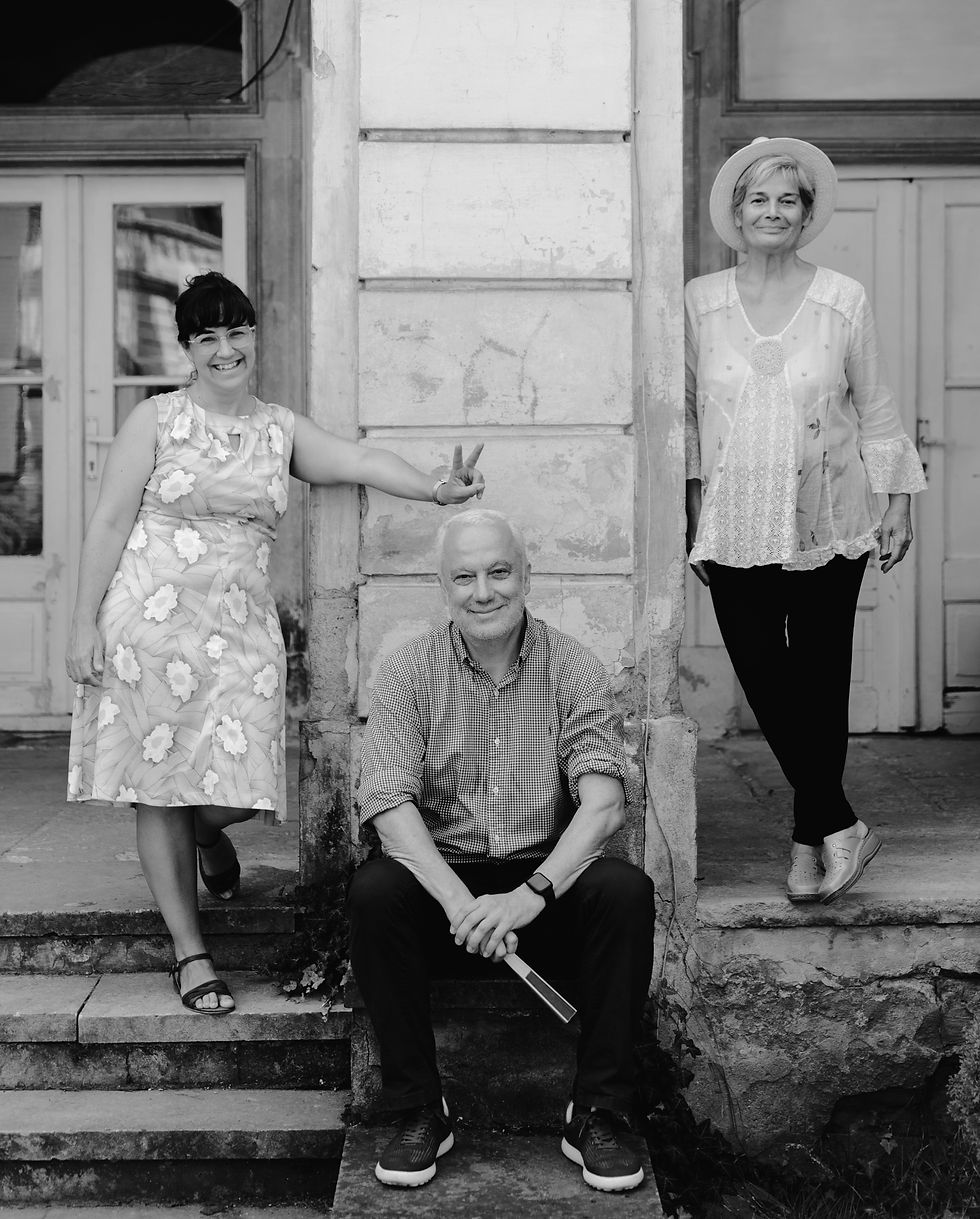
Vera Mijojlić
Drawing on a wealth of experience as a film curator and festival director, Vera Mijojlić brings her expert eye to the Romanian Days Feature Jury at the Transilvania International Film Festival. As the Founder and Artistic Director of the Los Angeles South East European Film Festival, she has played an essential role in promoting Southeast European cinema and the Romanian New Wave. With a career dedicated to presenting culturally significant films, Mijojlić's profound understanding of film and festival curation continues to shape her approach to film selection and judging. Her passion for cinema, enriched by years of curating retrospectives and mentoring filmmakers, allows her to bring a thoughtful perspective to every project.
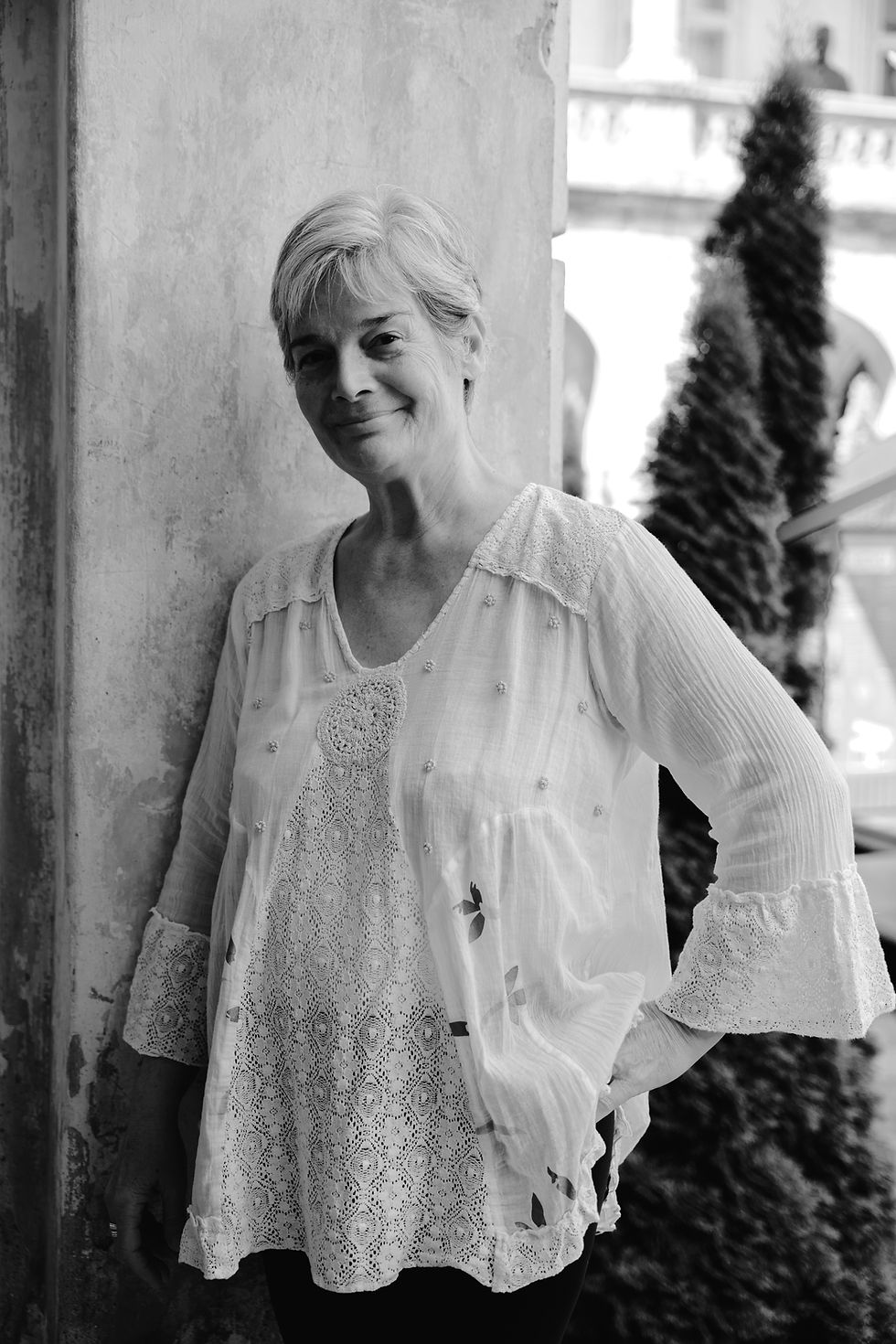
With vast experience managing the South East European Film Festival in Los Angeles, how has this perspective shaped your judgment of the films presented at TIFF Romania 2024?
SEEfest has been an early promoter of Romanian cinema and what has been named the Romanian New Wave. From the beginning, we showcased Romanian movies at each festival edition and championed the generation that burst onto the world stage in the aughts. I have become familiar with the style and storytelling, and I do my best to keep up with the upcoming movies and emerging Romanian filmmakers. However, I am careful to avoid judging or comparing the new with the 'old' and consciously try to always start from the blank-slate place and embrace what is on screen, on its own merit.
Given your roles as Founder and Artistic Director of the SEEfest, how do you balance presenting culturally significant films and aligning with commercial interests?
I wish there was a playbook for that! But in a nutshell, any art festival has to take risks to stay relevant while keeping a portion of its programming space for more audience-friendly films that may or may not be considered commercial in the broader sense of that word. Truly commercial films are blockbusters, tent-pole movies, which hardly have a place at an arthouse festival. Some years we are able to find a film with a broader appeal, and it can drive audience interest into the rest of the program. I also relentlessly explore the locale we operate in, the city and county of Los Angeles, and look for more venues that fit the different kinds of movies we show. Some are die-hard arthouse and experimental hubs, others are more academic, yet others provide a bit of a Hollywood flair. Choosing more diverse venues allows for a more varied programming slate and ideally draws in some new audiences.
Since SEEfest was founded in 2006, what have been the most significant changes in the film industry, and how have you adapted the festival to these evolving trends?
We could talk about this for days, but we still cannot clearly map all the changes that have taken place in our industry. Also, things are quite different in the U.S. from the rest of the world. To begin with, there is no government funding in the way it exists in Europe. Nor are there film centres, funds, or ministries of cultures on the federal and municipal levels. Making movies in the U.S. is an expensive undertaking. Maybe because it is so hard to be in this business, industry people are, by and large, super helpful and supportive of SEEfest. I am always amazed at how much they are willing to go the extra mile and how they appreciate movies from other countries.
The advent of AI and all things tech are much more significant for the big players than arthouse festivals. As for streamers, they (and COVID, of course) have cut deep into the moviegoing audience. But people still want to leave their homes and do something in a social setting, including experiencing movies with others. This requires additional work from us, such as creating an event atmosphere that makes it attractive enough for regular moviegoers to venture outside their homes or multiplexes.
This eventization of moviegoing puts an additional burden on everyone, including theatres. They have to constantly upgrade their facilities, add bars, restaurants, and lounges, in addition to having state-of-the-art projection equipment. The rest of us have to pony up more funds for the accoutrements that create the atmosphere of the red carpet, of certain exclusivity. But at the end of the day, it is back to basics: quality programming is our calling card, and so it should be. It is not getting easier, but human ingenuity, imagination, unpredictability and rebelliousness always win the day.
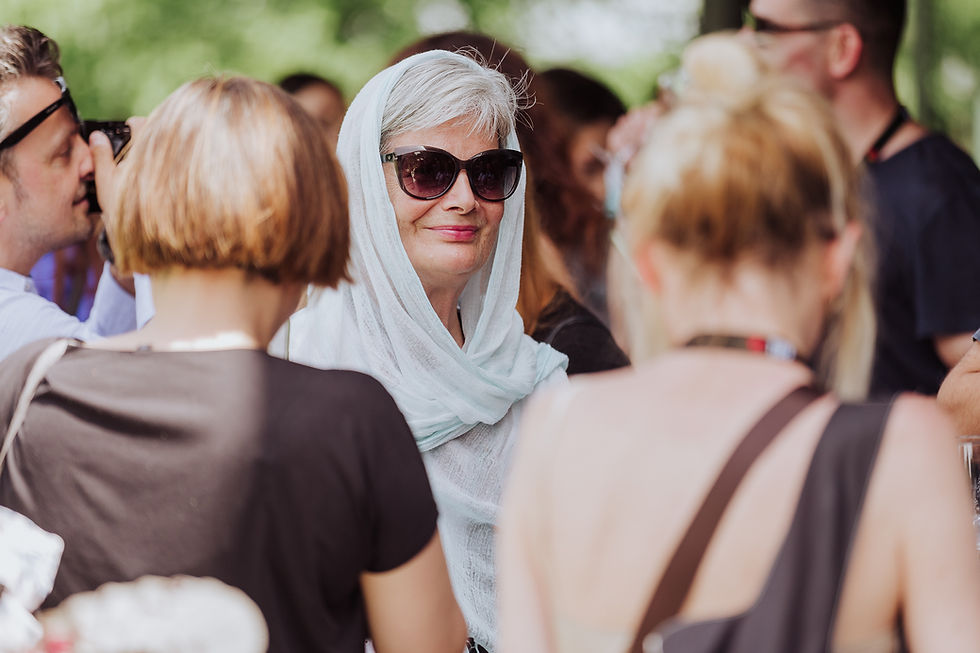
How have various awards and recognitions, such as the Women in Leadership Award, influenced your trajectory and approach to managing SEEfest?
For hard work to be recognized by peers is a reward to be appreciated, of course. Such accolades help raise the SEEfest profile, which also helps me in my work. However, I don’t think any of these awards have significantly changed my approach to managing SEEfest. They may have reinforced the sense of responsibility to festival stakeholders, filmmakers, and audiences. Still, I am by nature driven to make sure I always deliver quality and justify the trust that many people, including our Board of Directors, funders and donors, filmmakers, audiences and volunteers, place in me and my decisions.
By the same token, I always strive to ensure a collaborative environment where film selection is made by a group of talented people invested in the success of SEEfest as our joint venture, something we create together. The process’s best part is the broad support and collaboration with many different people. I don’t want to be removed from the grassroots vantage point. I will be the first to arrive and last to leave the screening and do everything I can for our fantastic volunteers. I have also mentored several filmmakers and followed how their careers and filmmaking evolved. As long as I feel the joy of this work, that is the main, most satisfying reward.
When organizing major retrospectives for institutions like the UCLA Film Archive and the Austin Film Society, what guiding principles do you follow in selecting films, and what qualities do you prioritize?
I grew up in Jugoslovenska Kinoteka (Cinematheque) and have seen many classic movies there. Archives and libraries are my second home. And I wish I had another me who would only be working on putting together these retrospectives. They take a lot of time, much more than producing the annual festival. The starting point is pretty much the list of films I already know that merit a place in the retrospective, but the real work is getting the films and making sure there are good prints or DCPs. Some classic films have been restored, but not all. Some have clear titles (in legal terms), but for some, the copyright issues were still murky. Such problems slow the process, and the whole undertaking requires lots of time and patience.
The priorities are culturally significant and specific movies that speak of the broader context in which they were made. Obviously, one has to look for the best! Directors with a great body of work, the trailblazers, the risk takers. Films that came from seemingly nowhere and suddenly spoke in a new cinematic language. Changemakers in a country's cultural life or movies that managed to portray an offbeat art movement in a whimsical, innovative way.
There is no one-size-fits-all. You pore over available material, get reminded of forgotten gems, and then get stuck when you select way more than fit the maximum number of films you can show, usually with partners who have many other programs going on as well.
Cutting the program down is a painful thing but necessary. It is like sitting in the editing room and realizing that you must cut a scene or two from your movie and don't want to do it. But the program takes shape in the end, and if the job is done well, and lots of thought and deliberation goes into it, it shows. The program goes before an audience, and the selection will hopefully tell an interesting, new, never-before-told story about a specific place and specific filmmakers who lived and worked in that space.
Yaara Ozery
Yaara Ozery, a passionate advocate for documentary films, brings her unique knowledge to the Romanian Days Feature Jury at the Transilvania International Film Festival. With a deep-rooted commitment to amplifying women's voices in cinema, she is the Founder of Mirrors—The Tel Aviv University Women's Film and Television Conference, which bridges the gap between academia and the film industry to promote the recognition of women's work. Her programming experience spans notable festivals like the Haifa Film Festival and DocAviv, where she continues championing various and inclusive storytelling. At TIFF Romania 2024, Ozery's keen eye for socially impactful narratives and her dedication to highlighting underrepresented perspectives provide a thoughtful approach to evaluating the films.
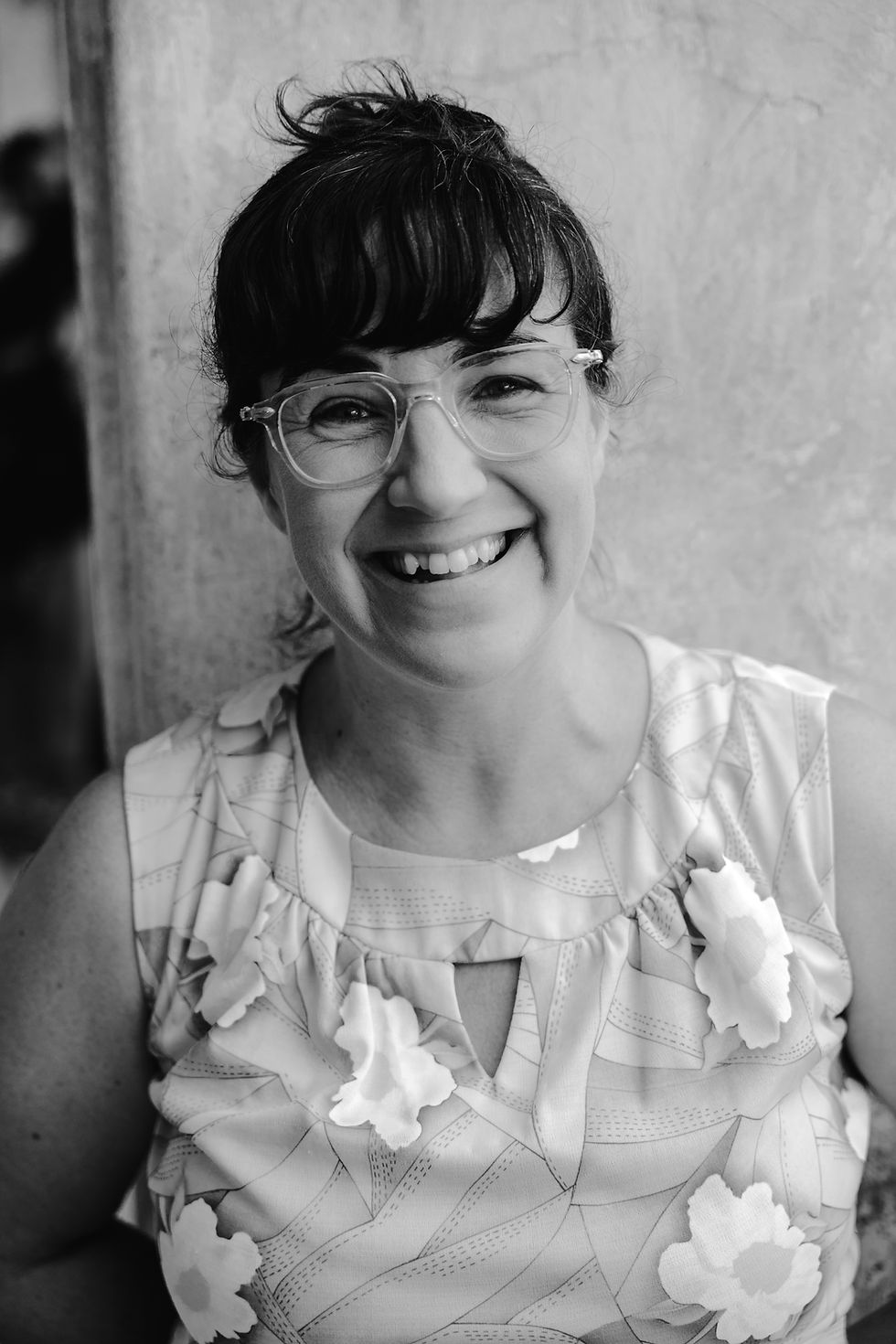
Focusing on documentary films and films directed by women, how did you see these elements reflected in the selection at TIFF Romania 2024?
We really appreciated Isabela Tent's "ALICE ON&OFF." It was a patient documentary that allowed the main protagonist to live in front of the camera and express herself without slipping into sensationalism or exploitation. Filmmaker Isabela Tent handled the delicate issues of addiction and intergenerational trauma with integrity and sensitivity.
Mirrors—The Tel Aviv University Women’s Film and Television Conference was founded in 2017. What inspired you to create it, and how has it evolved?
My inspiration was to create a stage for highlighting women’s work in the film and television industry and to engage more academic researchers in discussing women’s work and cinema. I was aiming for an academic conference which will include presentations and talks by filmmakers showing their work and, by that, to provide a bridge between the Israeli film industry and academia, which somehow feels like two separate worlds. The Steve Tisch School of Film and Television at Tel Aviv University provides the perfect home for this endeavour, as it contains both film studies and filmmaking practice studies, and we feel that the conference can benefit both practicians and scholars.
Can you discuss the goals and outcomes of the Mirrors – The Tel Aviv University Women’s Film and Television Conference and how it has influenced your work in film programming?
I do not think it influenced my programming, but of course, these two worlds resonate with each other. I try to see my blind spots regarding inclusiveness and diversity.
How does your programming experience at the Haifa Film Festival compare to your time managing programs at DocAviv?
I love both festivals deeply, and I have been an enthusiastic viewer of both for the past 25 years. Working as a Program Manager is more challenging and demanding because I had to oversee the entire program. In my current job, I am focusing on the fun part of watching films, and although I will always have more passion for documentaries, it’s nice to engage with current international and Israeli fiction filmmaking.
What do you anticipate for the future of women’s cinema and television, and how influential will conferences like Mirrors be?
To paraphrase feminist film scholar Alison Butler, who is, in turn, quoting the French philosopher Gilles Deleuze, I think women's cinema has "a double impossibility, that of forming a group and that of not forming a group." As long as women's cinema is not 50% of the cinema made around the globe, and as women are still fighting against sexism and for equality and are still often being written out of history, we need to keep creating these spaces of dialogue and thought. I think it is influential mainly for the young generation of filmmakers and scholars because "you can't be what you can't see."
Yorgos Krassakopoulos
With a distinguished background in film programming and criticism, Yorgos Krassakopoulos is the Head of Programming at the Thessaloniki International Film Festival and has experience curating for both the Athens International Film Festival and the Thessaloniki Documentary Film Festival. Renowned for his ability to identify groundbreaking films and emerging talents, Krassakopoulos brings a deep understanding of global cinema and a passion for innovative storytelling, making him a valuable asset in evaluating films at the Transilvania International Film Festival in 2024.
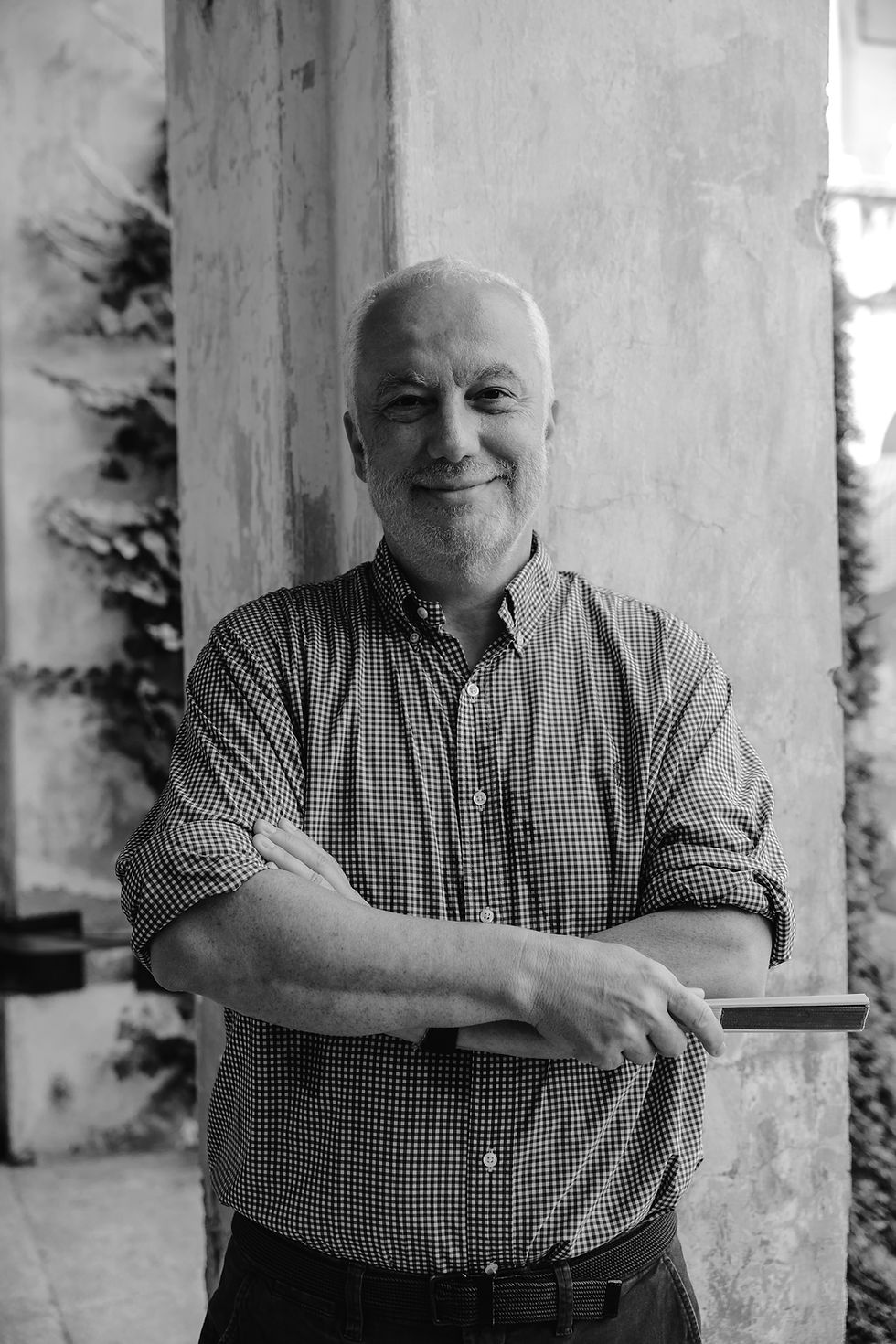
How does your experience as Head of Programming for the Thessaloniki International Film Festival influence your evaluation of the films presented at TIFF Romania 2024?
As a jury member, part of your job is to evaluate films in relation to one another, considering how each work fits within the competition and what distinguishes it for potential awards. My background in film programming and film criticism certainly shapes my perspective; I’ve had the opportunity to see a wide range of films, which helps me understand the nuances of strong storytelling and innovative filmmaking. However, I strive to evaluate each film on its merits while being aware of how it interacts with the other entries. It’s about identifying the films that offer something unique and meaningful, contributing to the overall dialogue within the festival and the broader cinematic landscape.
How has your approach to curating and programming films evolved over the years, from your time at the Athens Film Festival to your current role at Thessaloniki?
Both people and cinema evolve over time, and my experience at the Athens International Film Festival represents a specific point in my career. Athens and Thessaloniki are different events, each on its own scale, with Thessaloniki having a more considerable impact and attracting a much larger international audience but also having a significant industry component. What remains constant is my commitment to discovering innovative films and emerging talent. At Thessaloniki, I focus on curating programs that highlight the unique voices within the film community and address important themes. The festival’s larger platform allows for a richer exploration of cinematic storytelling and fosters connections among filmmakers, audiences, and industry professionals. Ultimately, I aim to ensure that the festival celebrates cinema while also serving as a catalyst for meaningful conversations about our world.
Given your role in overseeing the Thessaloniki Documentary Film Festival, what are the challenges of programming documentary films compared to feature films?
Programming documentary films presents unique challenges and rewards, though some aspects apply to documentary and fiction curating. One challenge in documentaries is their deep connection to real-world events and personal narratives, requiring a careful balance between compelling storytelling and the ethical responsibility of representing real people. The impact of documentaries can be profound, as they have the power to spark real change and raise awareness on critical issues. Curating these films allows me to connect audiences with voices that might otherwise go unheard, and the dialogue that follows screenings is enriching. Moreover, the genre’s diversity—from observational to experimental forms—makes programming creatively fulfilling. At the Thessaloniki Documentary Film Festival, we aim to showcase this variety, presenting films that challenge conventional storytelling, just as we do with feature films.
What has been the most fulfilling moment in your career, from founding Playtime to leading the Thessaloniki International Film Festival?
I’d say that having the opportunity to work in the film world is a true gift. While the job comes with its own set of challenges, I feel incredibly fortunate to be part of this vibrant industry. The chance to connect audiences with impactful stories and emerging voices makes every challenge worthwhile. It’s a privilege to contribute to the art of cinema and witness its power to inspire and provoke thought.
How do you see the role of festivals like Thessaloniki and Transilvania International Film Festival evolving in response to changes in the way audiences consume and engage with films?
Festivals like Thessaloniki and TIFF Romania have always been key cultural events, not only showcasing films but also creating a space for engagement, discovery, and conversation.
I see festivals playing an increasingly critical role as cultural curators in a time of content overload. With the abundance of films and series available on streaming platforms, audiences can feel overwhelmed by choices. Festivals serve as a filter, offering carefully curated selections highlighting artistic quality, innovation, and diverse voices. This curatorial function is essential as audiences seek more meaningful and enriching viewing experiences.
Ultimately, I believe festivals like Thessaloniki and TIFF Romania will continue to act as gatekeepers for cinema that challenges, inspires, and provokes.

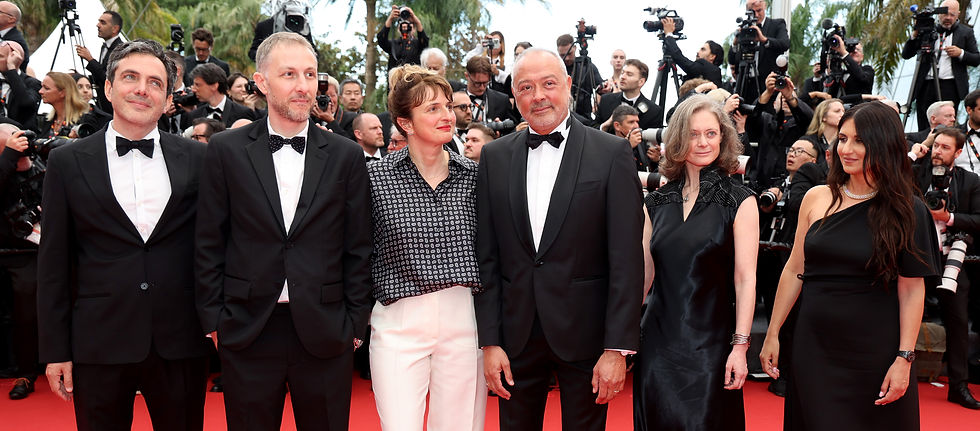


Comments